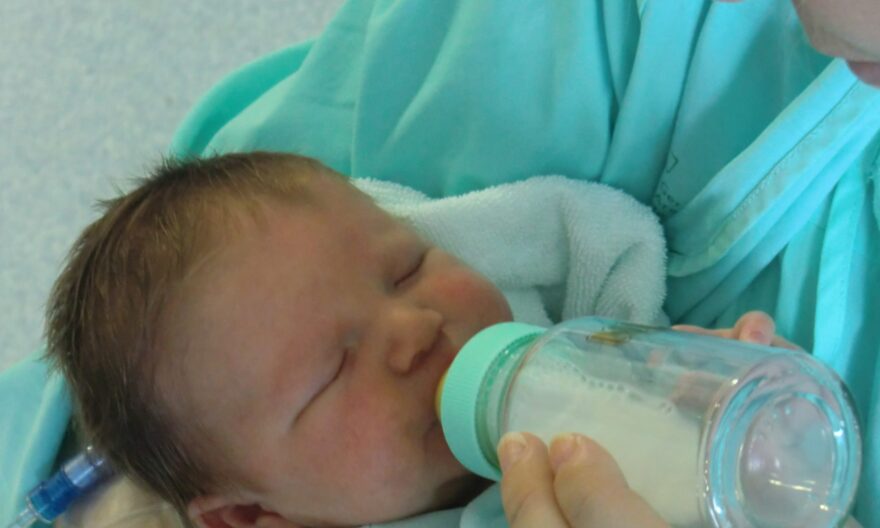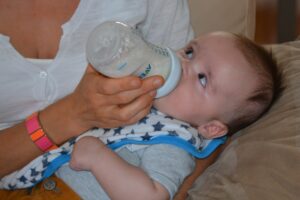
With the recent shortages of baby formula being a huge concern for parents, health experts have warned that misleading marketing tactics are exploiting consumers and they need to end.
According to a new report published in the medical journal The Lancet, the infant formula industry uses “predatory tactics” in its marketing. It claims that this, alongside inadequate maternal support, means that less than half of the world’s infants are breastfed.
Infant formula doesn’t have the same health and developmental benefits as breast milk. Research shows that it lowers the risk of chronic and infectious diseases, promotes healthy brain development, and reduces the risk of malnutrition.
It also has health benefits for mothers. Studies show that women who breastfeed have a reduced risk of type 2 diabetes, breast and ovarian cancer, and cardiovascular disease.
In fact, according to research in The Lancet and Health Policy and Planning, universal breastfeeding could save 823,000 infant and 98,000 maternal lives a year.
Health experts claim that the marketing tactics used by companies in the infant formula industry are exploitative and irresponsible and have called for stricter government regulations.
Dr. Nigel Rollins, a scientist with the World Health Organization and co-author of the series, said in a news release said: “The sale of commercial milk formula is a multi-billion-dollar industry which uses political lobbying alongside a sophisticated and highly effective marketing playbook to turn the care and concern of parents and caregivers into a business opportunity.
It is time for this to end. Women should be empowered to make choices about infant feeding which are informed by accurate information free from industry influence.”
Co-author Rafael Perez-Escamilla added: “One of the factors, which is a main focus of the series, is the very misleading and exploitative marketing from infant formula companies that use messaging about the benefits of their products without almost any scientific basis whatsoever, essentially sending a message that infant formulas are similar to, if not even better than, breastfeeding for the health and well-being of the babies.”



